Filter by
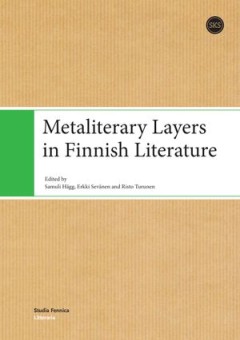
Metaliterary Layers in Finnish Literature
In international research, metafictionality and other metaliterary features have typically been regarded as phenomena related to postmodernist fiction, in particular – Metaliterary Layers in Finnish Literature, however, discusses the metalayers of Finnish literature from the early 20th century to the present. By analyzing different genres of Finnish literature in varying historical contexts M…
- Edition
- -
- ISBN/ISSN
- 9789522220639
- Collation
- -
- Series Title
- -
- Call Number
- 800 MET
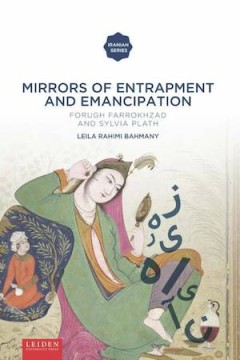
Mirrors of Entrapment and Emancipation : Forugh Farrokhzad and Sylvia Plath
Mirrors of Entrapment and Emancipation explores the rich diversity of the meanings associated with the mirror and reflection in literature by women on the basis of the works of the Persian Forugh Farrokhzad (1935-1967) and her American contemporary Sylvia Plath (1932-1963). These two poets astutely employed mirror images for the realization as well as for communication of their turbulent psycho…
- Edition
- -
- ISBN/ISSN
- 9789087282240
- Collation
- -
- Series Title
- -
- Call Number
- 305.4 BAH m
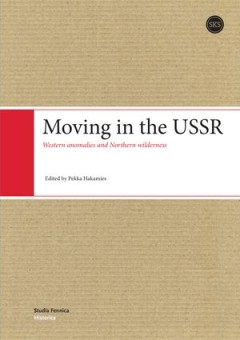
Moving in the USSR : Western anomalies and Northern wilderness
"This book deals with 20th century resettlements in the western areas of the former USSR, in particular the territory of Karelia that was ceded by Finland in the WWII, Podolia in the Ukraine, and the North-West periphery of Russia in the Kola peninsula. Finns from Karelia emigrated to Finland, most of the Jews of Podolia were exterminated by Nazi Germany but the survivors later emigrated to Isr…
- Edition
- -
- ISBN/ISSN
- 9789518580235
- Collation
- -
- Series Title
- -
- Call Number
- 900 MOV
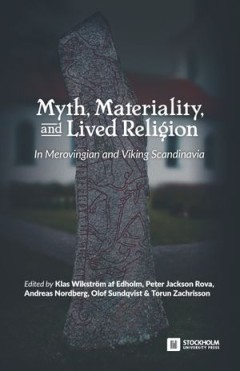
Myth, Materiality, and Lived Religion : In Merovingian and Viking Scandinavia
"The authors of the present volume, Myth, Materiality, and Lived Religion, focus on the material dimension of Old Norse mythology and the role played by myths in everyday life. More broadly expressed, the collection looks at the social, ceremonial and material contexts of myths. This topic has been underexplored in previous research on Old Norse myths, despite its important theoretical implicat…
- Edition
- -
- ISBN/ISSN
- 9789176350966
- Collation
- -
- Series Title
- -
- Call Number
- 390 MYT
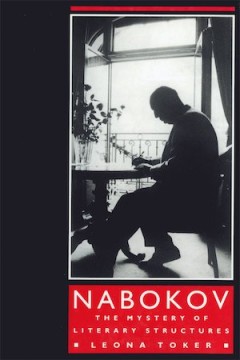
Nabokov : The Mystery of Literary Structures
Vladimir Nabokov described the literature course he taught at Cornell as "a kind of detective investigation of the mystery of literary structures." Leona Toker here pursues a similar investigation of the enigmatic structures of Nabokov's own fiction. According to Toker, most previous critics stressed either Nabokov’s concern with form or the humanistic side of his works, but rarely if ever th…
- Edition
- -
- ISBN/ISSN
- 9781501707223
- Collation
- -
- Series Title
- -
- Call Number
- 800 TOK n
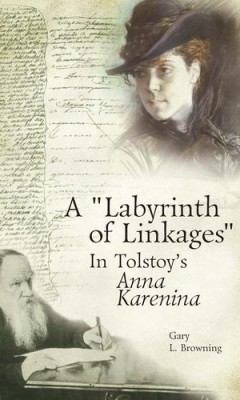
A "Labyrinth of Linkages" in Tolstoy's "Anna Karenina"
The renowned Russian writer Leo Tolstoy created a realistic masterpiece in Anna Karenina (1878). In the same work, moreover, he utilized allegory and symbol to an extent and at a level of sophistication unknown in his other works. In Browning’s study, the author identifies and analyzes previously unnoticed or only briefly mentioned “linkages and keystones” found in two highly developed cl…
- Edition
- -
- ISBN/ISSN
- 9781936235186
- Collation
- -
- Series Title
- -
- Call Number
- 800 BRO l
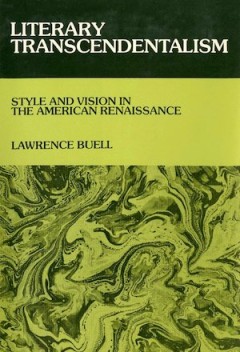
Literary Transcendentalism : Style and Vision in the American Renaissance
Broader in scope than any previous literary study of the transcendentalists, this rewarding book analyzes the theories and forms characteristic of a vital group of American writers, as well as the principles and vision underlying transcendentalism. All the movement's major literary figures and forms are considered in detail.Lawrence Buell combines intellectual history and critical explication, …
- Edition
- -
- ISBN/ISSN
- 9780801491528
- Collation
- -
- Series Title
- -
- Call Number
- 800 BUE l
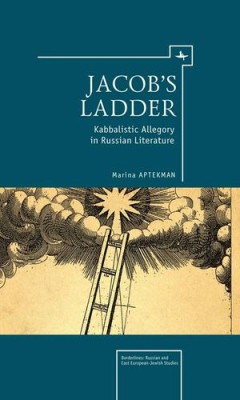
Jacob's Ladder : Kabbalistic Allegory in Russian Literature
Jacob’s Ladder discusses the reflection of kabbalistic allegory in Russian literature and provides a detailed analysis of the evolution of the perception of Kabbalah in Russian consciousness. Aptekman investigates the questions of when, how, and why Kabbalah has been used in Russian literary texts from Pre-Romanticism to Modernism and what particular role it played in the larger context of th…
- Edition
- -
- ISBN/ISSN
- 9781618116918
- Collation
- -
- Series Title
- -
- Call Number
- 800
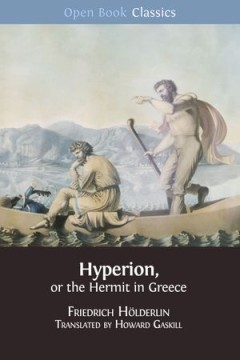
Hyperion or the Hermit in Greece
"Friedrich Hölderlin’s only novel, Hyperion (1797–99), is a fictional epistolary autobiography that juxtaposes narration with critical reflection. Returning to Greece after German exile, following his part in the abortive uprising against the occupying Turks (1770), and his failure as both a lover and a revolutionary, Hyperion assumes a hermitic existence, during which he writes his letter…
- Edition
- -
- ISBN/ISSN
- 9781783746576
- Collation
- -
- Series Title
- -
- Call Number
- 800 GAS h
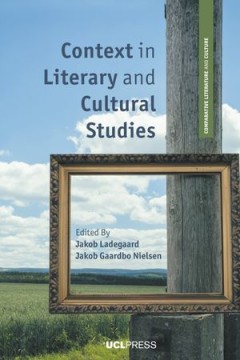
Context in Cultural and Literary Studies
Context in Literary and Cultural Studies is an interdisciplinary volume that deals with the challenges of studying works of art and literature in their historical context today. The relationship between artworks and context has long been a central concern for aesthetic and cultural disciplines, and the question of context has been asked anew in all eras. Developments in contemporary culture and…
- Edition
- -
- ISBN/ISSN
- 9781787356245
- Collation
- -
- Series Title
- -
- Call Number
- 306 CON
 Computer Science, Information & General Works
Computer Science, Information & General Works  Philosophy & Psychology
Philosophy & Psychology  Religion
Religion  Social Sciences
Social Sciences  Language
Language  Pure Science
Pure Science  Applied Sciences
Applied Sciences  Art & Recreation
Art & Recreation  Literature
Literature  History & Geography
History & Geography